
views
Outfits
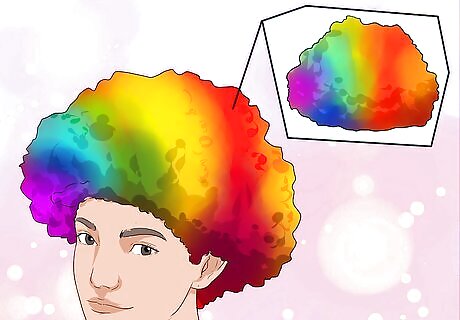
Wear a colorful wig. Many clowns wear wigs over their real hair. Be sure to try on your wig at the costume shop to make sure it fits. Clowns often have rainbow-colored wigs.
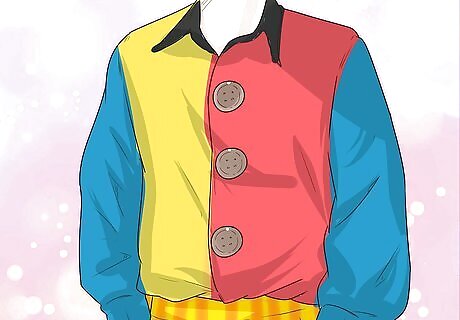
Wear a brightly colored printed shirt with big buttons. Wear something that fits your style, matches your outfit, and looks a little bit outrageous. Feel free to layer a bright jacket or blazer over your shirt, too. Find one at either a costume shop or a thrift store.
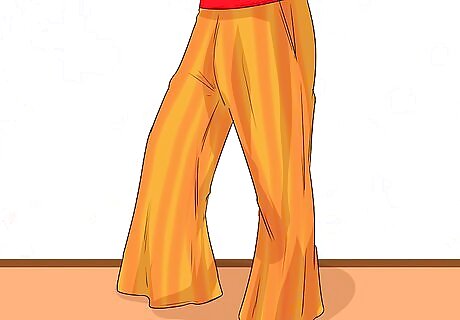
Wear oversize pants or overalls. Clowns often wear very bright colors and prints. They also wear a lot of primary colors. Choose pants that match your current ensemble. Buy these at a costume shop. Pajama pants will also work!
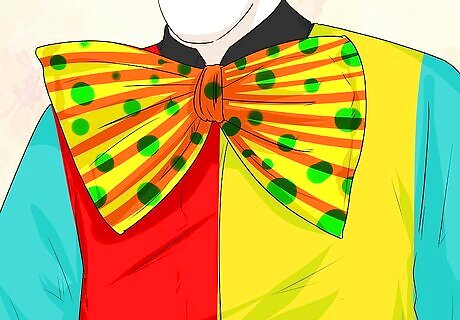
Choose a bow tie or traditional tie in bright colors. Nothing is too loud or too outrageous for a clown outfit. Really large ties tend to look best on clowns because the rest of their outfits are already oversized.
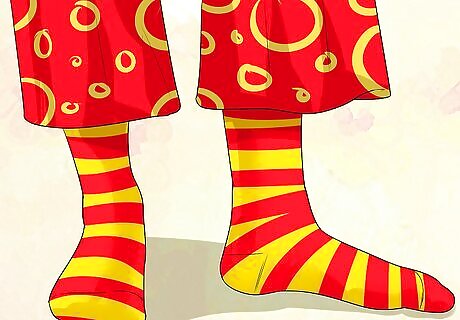
Wear elaborate socks. You can choose any pattern of sock as long as you think that it goes with the rest of your outfit. Tuck your pants into your socks if you really like your socks to show them off.
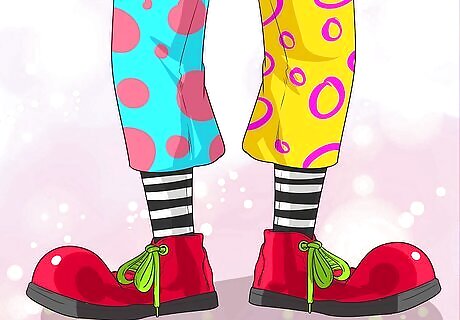
Wear oversized shoes. A typical clown wears enormous shoes that are bright and shiny. Look for a pair of these at a costume shop. Wear a class red “clown nose.” Not all clowns need red noses, but a red nose instantly identifies you as a clown. Buy some spare noses at a costume shop, too.
Makeup
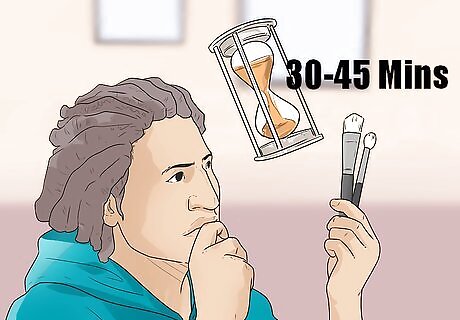
Allow 30 to 45 minutes to do your makeup. Set up your materials. You will need a thick white cream base, red and black face paint, as well as your desired colors for your own specific patterns and designs. You will also need both thick and thin makeup brushes, as well as a sponge.
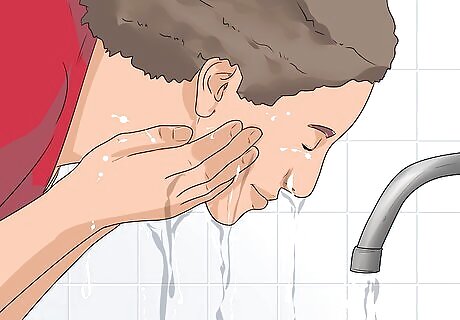
Wash your face. Make sure it is free of any other makeup. Moisturize your skin with a light face cream.
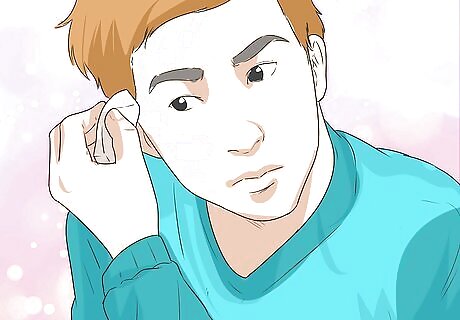
Paint the base of your face entirely white. Make the coat of white base thick and even. Use both the sponge and the thick makeup brush. Cover your eyebrows. Put on a headband to hold your hair back. Paint your neck and ears white, too. Make sure that there is no white skin showing on your head and neck.
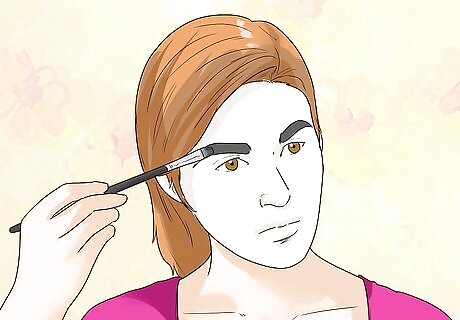
Draw back on your eyebrows with black face paint using a thin brush. Draw them above where your typical eyebrows would be, about halfway between your real eyebrows and your hairline. Outline them first with a black eyeliner pencil, and then fill them in. Make them more larger, longer, more arched, and more expressive than your normal eyebrows so that you look happier.
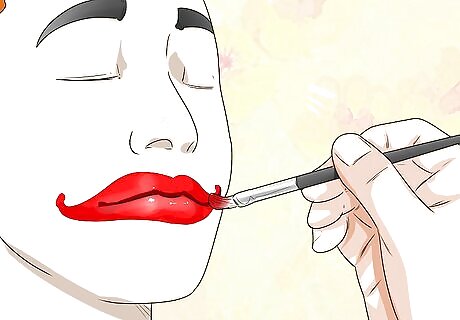
Paint your lips red. Again, draw a more exaggerated, larger lip shape than you actually have. Outline your lips in black first and then paint them in red. You can paint your lips into a smile or into a sad face, if you choose.

Add your own details. All clowns have their own styles. Look at various pictures of clowns and pick out the clown makeup details that interest you most. Here are some examples: painted triangles either above or below the eyes, outlined in black with a dot at the point of the triangle farthest from the eye red circular cheeks exaggerated eyeshadow that extends to the eyebrow freckles in bright colors fake tears
Performance

Create a clown persona. Get to know your clown’s character. Is your clown persona extroverted, shy, goofy? What kinds of tricks do you want to do as a clown? A shy clown probably would not do showy magic tricks, and a goofy clown probably would not have makeup with fake tears on it. Make sure that your clown has a distinctive character. Many clowns often improvise when they’re onstage; practice your improvisation while you’re exploring your clown’s character.

Create a name for your clown persona. Many clowns have their own names that they use for professional purposes. This name sometimes ends in “o,” such as “Bozo” or “Cheeko.” Think about your name carefully, because you will use it to market yourself for gigs.
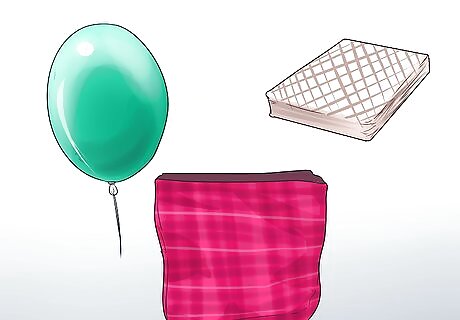
Acquire clown accessories. Clowns always have tricks up their sleeves, from balloon animals to card tricks to handkerchiefs for juggling. Here are some examples of things you might want in your own clown arsenal. Balloons and balloon pumper for making balloon animals Handkerchiefs for juggling Fake thumb tips “Magic change bags” (for turning something into something else) Silk scarves A “trick” deck of cards

Create your performance. Clowns aim to be funny and also tend to do different tricks throughout their acts. Whether you want to make balloon animals, juggle, perform magic, mime, or do a comedic routine, your act will ultimately be a performance. You can also consider humor, especially slapstick humor, when creating your act. When people see clowns, they want to laugh and be entertained. Watch videos of successful clowns (either at the circus or doing freelance work) to see what fits your style and persona.
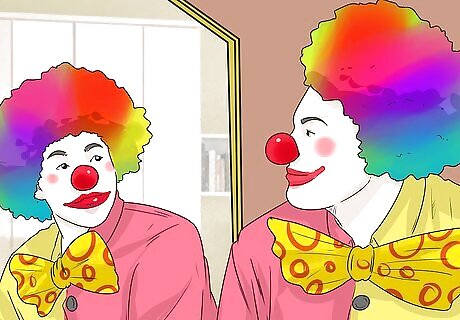
Practice your tricks. Practice in front of the mirror with your costume and makeup done. Make your card tricks and balloon animals flawless so that you can focus on other aspects of your performance.
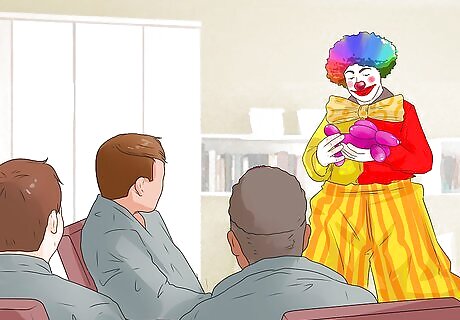
Practice your performance for a small audience. Gather a group of people you know and trust to evaluate your clown performance. If you know any other people who clown, ask them to critique your performance. Practice your performance as though it is the “real thing” and ask them to write down comments for you on ways to improve it and things that are working well. Here are some questions you can ask them: What in my performance was funny? What was not funny? What was impressive in terms of tricks? Did the performance “drag” in any places? What did you like about my performance? What did you dislike? Overall, did it feel too long or too short? Did anything look unpolished?

Attend clown college. Spend 8 weeks learning about the process of being a clown. You will receive training to develop your clowning skills. You will also receive professional development; after the end of the 8 weeks, the college will facilitate your auditions for different circuses, if you would like.
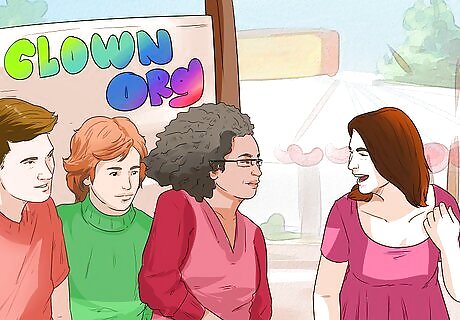
Join a clown organization. Many groups, like the World Clown Association, exist for the purpose of supporting aspiring clowns. Explore the resources that a clown organization can offer to you, whether it might be mentorship from an older or more experienced clown or a tutorial on how to do makeup more effectively. Many of these resources are available only to members.
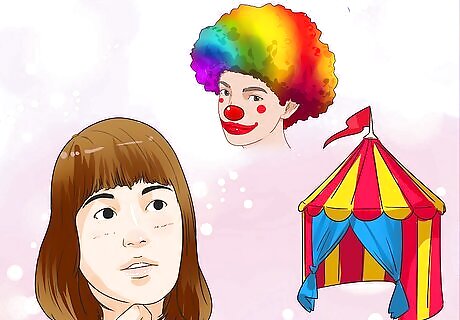
Decide what kind of work you want to pursue as a clown. Many clowns start out in the world of freelancing, but, eventually, clowns either focus on freelance work or try to start performing with a circus. Decide which of these options is for you. Do you want to stay in one place to do freelance work, or would you travel with a circus? Freelance clowns have more flexibility in their schedules, but they do need to market themselves extensively so that they keep getting gigs. If you are an established circus clown, it may be easier to get more freelance gigs. Consider joining a circus for a couple of years and then settling into freelance work. Circus clowns need to audition and travel with the circus. However, unlike freelance clowns, they do receive health benefits. Many people cannot be circus clowns for their entire careers because the travelling is challenging. Circus clowns may do 500 shows in one calendar year!
Freelance Clown Work

Master in-demand clowning skills. Focus on skills that people typically want from clowns. Getting really good at these skills will allow you to give your customers what they want. Here are some typical clown “acts” that people love to see: Balloon animals Small pranks (such as squirting water from a flower) Basic magic (pulling a rabbit out of a hat) Slapstick humor Juggling Small acrobatics
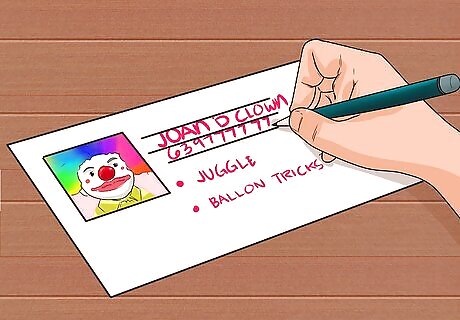
Market yourself. Create business cards with your contact information, clown name, and photo. Write down your specialties, such as birthday parties, magic tricks, or slapstick humor. Make flyers with this information on them and hang them up in public places (such as coffee shops, restaurants, and toy stores).
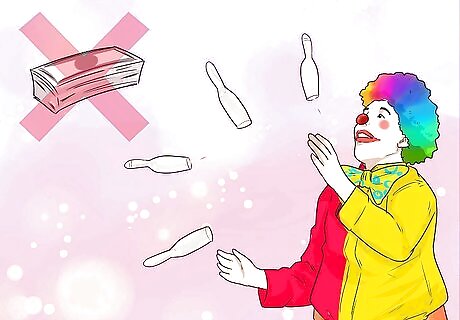
Perform for free. Offer to do a friend’s child’s birthday party free of charge. Many clowns succeed because of word of mouth. If you offer to do one birthday party for free, you might get three more offers from parents at the party. You can also set yourself up on a street corner to perform for tips. Put business cards out for people to take. Make sure that it is legal in your area to perform on the street. Sometimes clowning on the street for tips is a great way to meet new people and practice your performance.
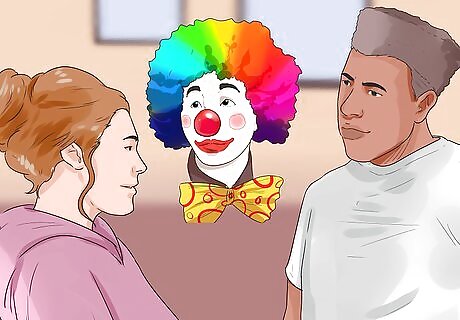
Ask friends to recommend you to their friends. Freelance work is all about growing a network. Ask friends, family, coworkers, and neighbors to help you get more clients and gigs. Make sure that you give them multiple business cards of yours so that they can hand them out to others.

Decide on your rate. As you become a more experienced and sought-after clown, you can definitely increase your rate. In the beginning, though, choose a rate that covers all the costs of your performance (such as balloons and transportation) plus a small amount that will increase as you become more experienced. Initially, charge about $100 per hour. More experienced or sought-after clowns can push as much as $500 per hour.
Circus Clown Work
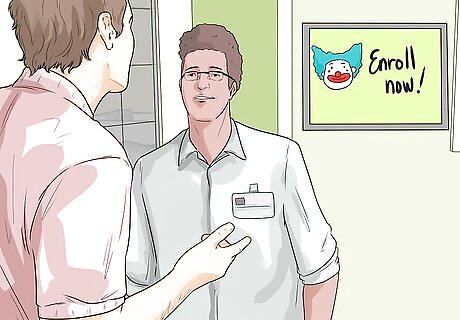
Go to circus school. In addition to clown college, you might find it beneficial to enroll in circus school. Circus school will give you a background in a number of different disciplines, including aerial arts, ground skills, physical theatre, and dance. You might find these skills useful as a clown who plans to audition for the circus.

Do a couple of freelance gigs. Try to get some more minor gigs--like birthday parties or festivals--before you audition for the circus. Practice your skills and performance. In particular, circuses look for a good sense of body language, comedic timing, improvisation, and special skills, such as gymnastics or juggling. Every circus will look for a different amount of experience and slightly different skills.
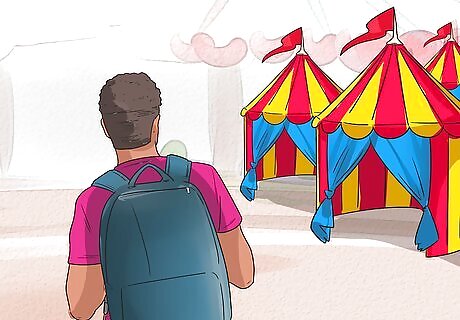
Be prepared to travel extensively. If you choose to join the circus, you will need to travel with the circus, wherever it goes. Make sure your family knows about your plans. Make arrangements for any pets that you have. Determine if you want to keep paying rent or terminate your lease.
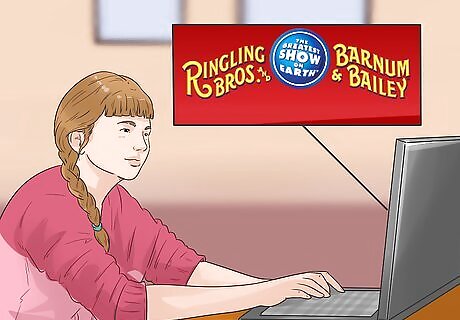
Audition for the circus. Look online to find job openings at different circuses. Look into the big circuses, such as Cirque du Soleil and the Ringling Bros. & Barnum and Bailey, but also don’t be afraid to begin your career with a smaller circus. If you've taken classes or known other clowns, ask them if they know of upcoming job opportunities. Apply for every job you think you could do. Although there are many job openings in circus careers, having options is still good. If you have trouble getting auditions or don’t get a job offer, take classes and add more clowning skills to your repertoire.















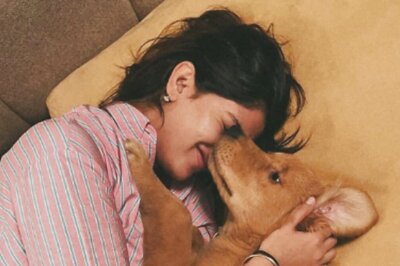




Comments
0 comment